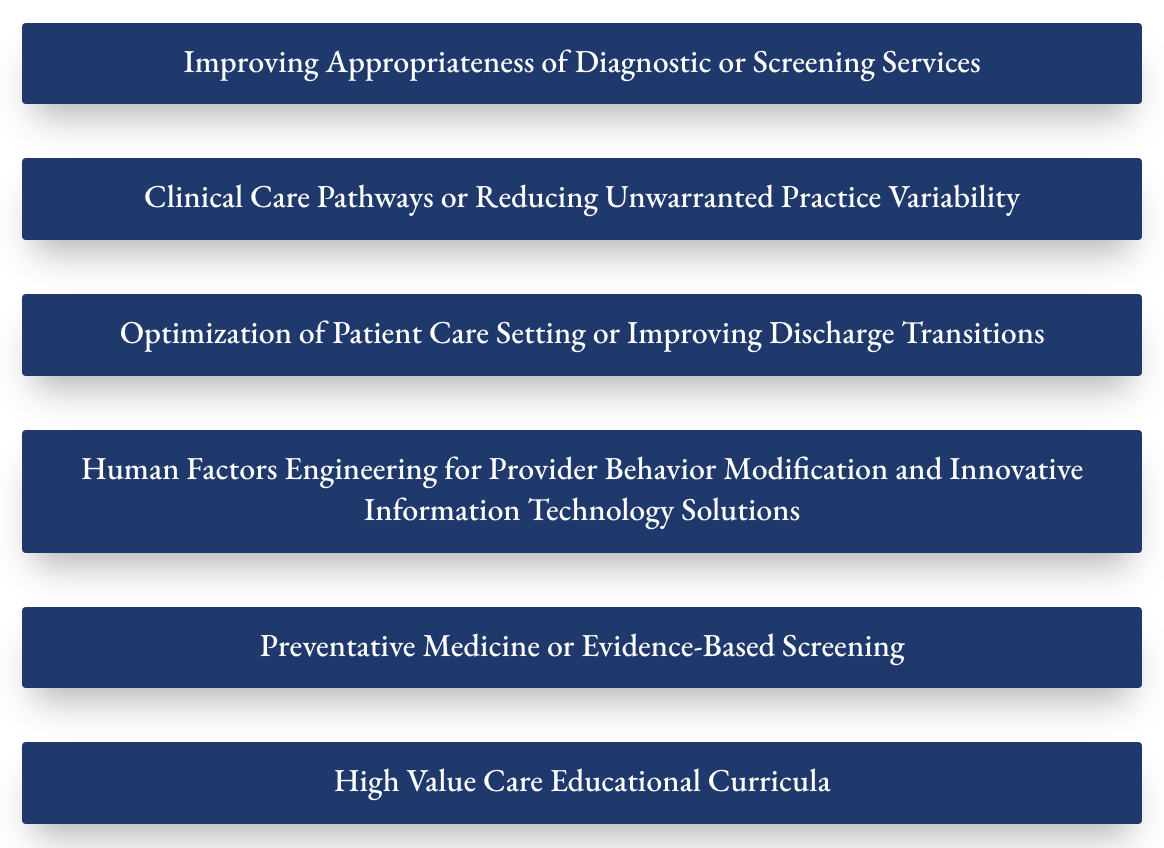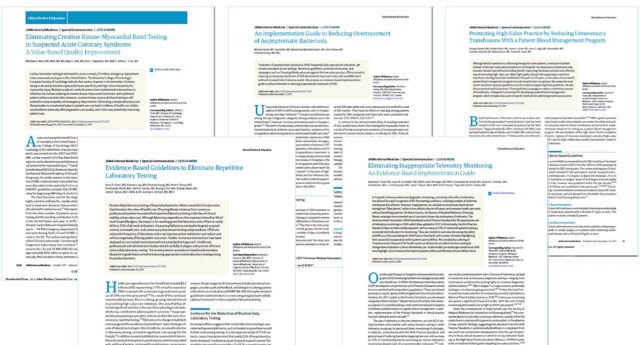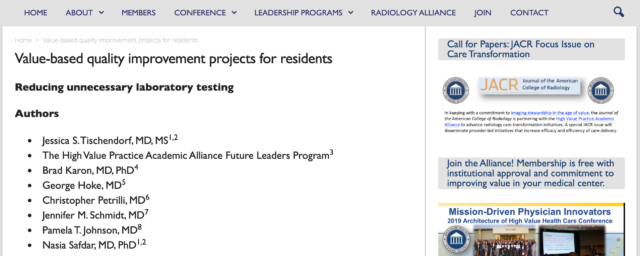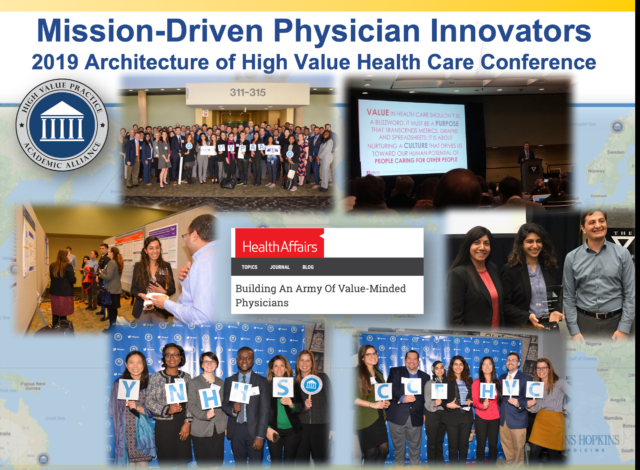From the 2021 HVPAA National Conference
Krista Dionne (Stamford Hospital), Rajeswari Jasty, Rebecca Newman, Forugh Homayounrooz
Background
The American College of Physicians (ACP) supports the Choosing Wisely® Campaign whose mission is to “promote conversations between clinicians and patients by helping patients choose care that is: supported by evidence, not duplicative of other tests or procedures already received, free from harm, [and] truly necessary.” Stamford Hospital (SH) Internal Medicine (IM) Residency Program strives to integrate the ACGME core competencies into our curriculum, including “practice-based learning and improvement,” which teaches residents to evaluate and appraise their care of patients based on scientific evidence and value.
Objective
Increase awareness of appropriate screening testing as recommended by professional societies including the USPSTF, AHA/ACC, and ADA. Compare those guidelines to practice habits in resident continuity clinics. Complete self-appraisal of Residents’ practice habits and formulate an action plan to improve practice of high value patient care.
Methods
In a retrospective self-evaluation, categorical IM residents at SH reviewed their care of patients seen from Sept 2019 to Jan 2020. Residents were provided with a “Practice Habits” worksheet which included information on professional society guidelines for screening testing, including lipid panels, HgbA1c, TSH, HIV, PSA, CBC, and BMP/CMP. Residents decided if they ordered tests more, less, or according to the guidelines and formulated a SMART action plan towards improvement of their high-value care practice habits.
Results
179 charts were reviewed by 18 categorical internal medicine residents. 40% of charts were evaluated as under-ordering HIV screening, 7% of charts had over-ordering of BMP/CMP, 6% of CBC, and 6% of TSH. 89% of residents ordered outside of guidelines at least once. SMART plan analysis showed that 56% of residents self-identified the need to “follow or learn guidelines,” 44% identified the need to increase HIV screening and 39% identified a need to be more prepared for visits with their continuity patients.
Conclusions
Residents frequently under-ordered HIV screening, which can be detrimental to public health, as approximately 14% of individuals affected are unaware of their diagnosis. Importantly, residents over-ordered tests including CBC, BMP/CMP, and TSH, which over time can create a significant cost burden. To practice high value care, it is important to limit ordering of unnecessary or repetitive testing.
Clinical Implications
Educating IM residents about high-value care via self-appraisal of continuity patients’ charts and providing a “Practice Habits” worksheet with laboratory screening guidelines helps to identify important trends in under and over ordering of specific lab tests. Asking residents to develop individual SMART plans for their own improvement is useful in self-directed learning and practice habit evaluation. IM Residents at SH recognized the need to improve the quality of their own medical practice and provide cost effective care, while continuing to follow recommended screening and preventive testing guidelines, by increasing preparedness and HIV screening, reviewing guidelines, and limiting the amount of unnecessary testing.





